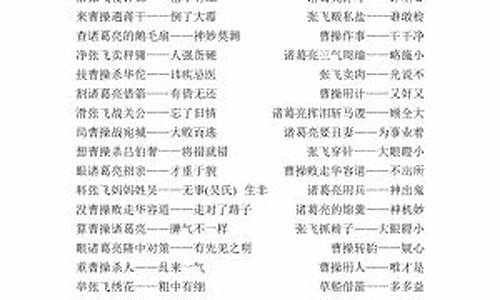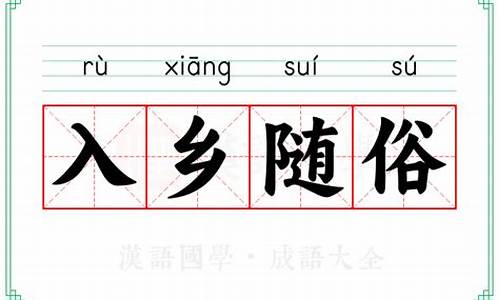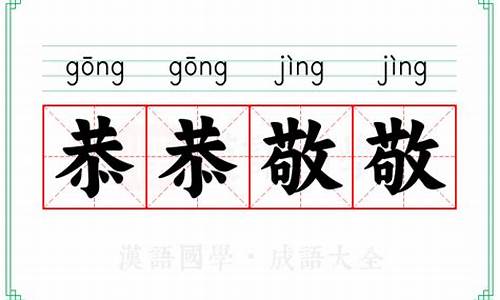您现在的位置是: 首页 > 成语典故 成语典故
一般将来时的句子-现在进行时的句子,英语
tamoadmin 2024-10-26 人已围观
简介Iwillgotoschooltomorrow.明天我要去上学Theywillcleanthewindowsthisafternoon.今天下午他们要擦窗户。Wewillplayfoolbalthissunday..这周日我们要去踢足球~~~~~~~~~~~~~~~~祝你进步,如对你有帮助,请及时采纳~~~~~~~~~~~~~~~~谁能帮我出四个一般将来时的句子 求附带解释1. Tomorrow

I
will
go
to
school
tomorrow.
明天我要去上学
They
will
clean
the
windows
this
afternoon.
今天下午他们要擦窗户。
We
will
play
foolbal
this
sunday..这周日我们要去踢足球
~~~~~~~~~~~~~~~~祝你进步,如对你有帮助,请及时采纳~~~~~~~~~~~~~~~~
谁能帮我出四个一般将来时的句子 求附带解释
1. Tomorrow will be Sunday.
2. We're going to meet outside the school gate.
3.If it doesn't rain tomorrow, we will go out for a picnic.
4. Uncle Wang is coming.
5.The rain will stop soon.
将句子改为一般将来时
我得(要)走了.
I am going./ I gotta go.(俚语)
他下午要去超市.
He will go to the supermarket this afternoon.
你下个月去旅游吗?
Will you go and travel next month?
Are you going to travel next month?
1.We'll bein our office tonight.
2.She won't be angry with you.
3.He'll come next week.
4.The book won't cost too mush.
5.There will be a show here tomorrow.
6.There won't be any rice here today.
7.Will you be at home this evening?
8.Will they come next week?
9.Will there be a party next month?
1 今晚我们在办公室。
2 她不会生你的气的。
3 他下周回来。
4 这本书不是很贵。
5 明天这里有场演出。
6 今天这里不供应米饭。
7 今晚你在家吗?
8 他们下周回来吗?
9 下个月会有聚会吗?希望能帮到你。。望采纳
一般过去时、一般将来时、现在进行时、一般现在时、比较级和最高级各造十个句子
1.I will read this book.
2.She is going to sbeaking to him.
3.He will go to the United States.
4.You will buy a house.
5.They are going to watch television.
6.Jim will have a lot of monmey.
7.Joan will find her pen.
8.Will you go to the cinema?
9.It will be cold this year.
10.Betty will arrive at the airport at six in the morning.
“一般将来时”的用法有哪些?
一般过去时:
1 I ate an ice cream yesterday.
2 They played football last Sunday.
3 She had a hamburger for breakfast this morning.
4 Amy visited the Great Wall last year.
5 I met my English teacher on my way home the day before yesterday.
6 My father bought me a story book last week.
7 We went to the park last Saturday.
8 Daming washed his T-shirt last night.
9 Her brother went to Shanghai in 2008.
10 In October 2005, Shenzhou V flew into space with Yang Liwei.
一般将来时:
1 I am going to go to the West Lake this summer.
2 They will go to the zoo tomorrow.
3 She is going to do her homework tonight.
4 He will play basketball with his friend this Sunday.
5 I will visit the UN building tomorrow.
6 Sam is going to go to Shanghai by plane.
7 My parents are going to see a movie tonight.
8 Simon will listen to music this evening.
9 They are going to row a boat on the lake next week.
10 The boys are going to play football after class.
现在进行时:
1 The birds are singing in the trees.
2 The ducks are swimming in the river.
3 Daming is visiting America with his cousin, Simon.
4 Amy is riding a bike in the park.
5 The teacher is teaching English in the classroom.
6 I am sending an email to my family in China.
7 They are visiting the Chinatown in New York.
8 She is playing the piano in the room.
9 The girls are singing and dancing. They are very happy.
10 He is running on the playground.
一般现在时:
1 I go to school on foot every day.
2 He always goes to work by car.
3 They often play games after school.
4 We always have a special meal. It's a big family dinner.
5 We usually do our homework after school.
6 She practices her piano every day.
7 I get up at half past six every morning.
8 Does he clean the classroom every day ?
9 Do they have Chinese class on Mondays ?
10 They have a party every Sunday.
比较级和最高级:
1 It is less cold today than it was yesterday.
2 This book is less interesting than that one.
3 Which is better , this one or that one ?
4 He is not more careful than Jack.
5 She is becoming more and more beautiful.
6 The earth is much bigger than the moon.
7 Tom is the tallest of us all.
8 China is larger than any country else in Asia.
9 The box is a litter heavier than that one.
10 The more you eat, the fatter you will be.
回答完毕,不知符合提问者要求不
“一般将来时”的用法:
一般将来时表示将要发生的动作或情况。
例如:I will(shall) arrive tomorrow.我明天到。(主语是第一人称时最好用shall)Will you be free tonight? 你今晚有空吗?
We won’t (shan’t) be busy this evening. 我们今晚不忙。
2.在一般将来时的句子中,有时有表示将来时间的状语,有时没有时间状语,这时要从意思上判断是否指未来的动作或情况。例如:Will she come? 她(会)来吗?
3.在以第一人称I或we作主语的问句中,一般使用助动词shall,这时或是征求对方的意见,或是询问一个情况: a. Where shall we meet? 我们在哪儿碰头?
b. Shall we have any classes tomorrow?明天我们有课吗?
在这类问句中,近年来也有不少人用will,特别是在美国。例如:How will I get there 我怎么去?
4.be going to+ 动词原形
a.表示计划、打算、准备做的事。例如:We are going to put up a building here.
我们打算在这里盖一座楼。
How are you going to spend your holidays?
假期你准备怎样过?
b.表示即将发生或肯定要发生的事。例如:I think it is going to snow.?
我看要下雪了。









